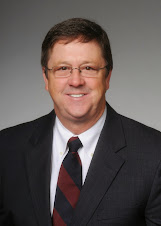State Capitol Week in Review
LITTLE ROCK – The state is in the process of contracting with private sector firms to operate the juvenile detention centers in Arkansas that are now being staffed by state employees.
The centers have space for about 200 young people. Since the beginning of this year they have been run by the state Department of Youth Services (DYS). However, for about 20 years prior to this year the department had contracts with private non-profits to operate them. Those contracts were not renewed and the state took over the administration of the facilities.
During the period in which DYS operated the facilities, its officials assessed the juvenile detention system’s strengths and liabilities. The new contracts that DYS will sign with private firms will reflect the changes that DYS wants to introduce, based on the assessments that have been made this year.
The juvenile detention centers are in Colt (St. Francis County), Dermott (Chicot County), Harrisburg (Poinsett County, Lewisville (Lafayette County) and Mansfield (Sebastian County). Another facility, at Alexander in Saline County, is already being operated under a separate contract with a private firm.
The governor and DYS officials outlined the changes they have made this year, and which they expect to continue after private firms take over the centers in July of 2018. Youths receive treatment for mental health problems and substance abuse more consistently, and it is provided by trained professionals.
Education is better tailored to the individual needs of students, so that they can maintain their academics at grade level or reach their grade level.
In the middle of the past school year, when DYS took over the detention centers, 92 percent of the 193 youths were not at grade level in reading and 86 percent were not at grade level in math. Also, 22 percent needed special education services.
DYS partnered with Virtual Arkansas to provide online courses. The virtual school already offers curriculum for about 50,000 students in 270 Arkansas schools. The partnership will provide consistency in educational offerings throughout the juvenile detention centers, and will make it easier for youths to transition back into their hometown schools when they leave the DYS facilities.
DYS will support Virtual Arkansas by providing education coaches in each classroom, and by providing special education, GED classes and vocational training on site.
The division has hired a consultant with expertise in Medicaid funding, to identify services that are offered in juvenile detention centers that Medicaid will fund. Currently about 84 percent of the division’s budget is paid for by state general revenues. Most Medicaid dollars come from the federal government. If Medicaid paid for some of the costs of operating detention centers, it would free up state general revenue funds for expansion of community programs for troubled youths.
DYS is dedicating $2 million to set up new community programs, in conjunction with local agencies and judges who hear juvenile cases. Many juvenile judges have voiced concerns about their lack of options when sentencing young people, and have said that they prefer to keep the youths at home rather than committing them to a detention center in another county.


No comments:
Post a Comment